Interview with T.S. Chaudhry, author of 'The Queen of Sparta'
T. S. Chaudhry was born in Karachi, Pakistan. He earned a bachelor’s
degree from Cornell University, a master’s degree from Harvard University, and a PhD from the University of Cambridge.
Formerly a Pakistani diplomat, Chaudhry currently works for the United Nations
on peace and security issues in Africa.
THE
QUEEN OF SPARTA is Chaudhry’s first novel. He came up with the idea to write a story about
Queen Gorgo being the architect of the Greek resistance against the Persian
invasion while reading Herodotus for his A-Level examination in England several
decades ago. “As a lover of
history, or a ‘history-buff,’ I have always enjoyed reading both fiction and
nonfiction about this period.”
Chaudhry
is currently working on a “prequel” to THE QUEEN OF SPARTA based on
events leading up to the Battle of Marathon, called Fennel Field.
For
More Information
About the Book:
Title:
The Queen of Sparta
Author: T.S. Chaudhry
Publisher: Top Hat Books
Pages: 383
Genre: Historical Fiction
Format: Paperback/Kindle
Author: T.S. Chaudhry
Publisher: Top Hat Books
Pages: 383
Genre: Historical Fiction
Format: Paperback/Kindle
Author T.S. Chaudhry offers a new spin on Spartan
history in his novel, THE QUEEN OF SPARTA. In the book, Queen Gorgo, the
wife of the courageous Spartan leader, Leonidas, surreptitiously organizes the
Greek resistance against the invasion of the mighty Persian king, Xerxes, and
his massive army. Although founded on the writings of historian, Herodotus,
Chaudhry’s revision of the 480 B.C. invasion challenges readers to imagine the
brilliant and politically savvy Queen Gorgo as the Spartan leader who wielded
her power with stealth and cunning to end the Persian occupation of Greece.
Gorgo devises a strategy using espionage and diplomacy,
in addition to Sparta’s military might, to defeat the Persians and drive them
out of Greece. During the last battle of the war, Prince Sherzada, a Saka, is
captured while fighting on the Persian side. He is imprisoned by Gorgo, who has
vowed to kill him. However, an unexpected alliance blooms between Gorgo and
Sherzada, based on common perceptions and a shared dark secret. As allies, the
queen and prince face new dangers from within Sparta that threaten the safety
of Gorgo and her young son, the king.
As the story progresses, Queen Gorgo must choose
between confronting the reactionary forces within Sparta directly or saving her
life and the life of her child.
THE QUEEN OF SPARTA begins on the Banks of Indus, and takes
the reader through time and space to Greece, Tuscany, Rome, and the Baltic
coast of northern Europe and attempts to link some of the main cultures of that
time period. “In the novel, I tried to present the conflict through the eyes of
two protagonists,” Chaudhry states. “The Greek viewpoint is presented through
Queen Gorgo, and the opposing one is represented by Prince Sherzada, who
becomes her prisoner. The whole story is also a deliberate attempt to confuse
‘the possession’ of history because, actually, history belongs to all of us.”
THE QUEEN OF
SPARTA informs the reader
about the politics of ancient Greece in the 5th Century, B.C. and
about Sparta, its people, and its culture; the book also describes what made
the Spartans great while sharing the flaws and contradictions within their
society. Chaudhry notes that “fiction is art immitating life. That is how I see
the relationship between historical fiction and history. History has wonderful
stories to tell. And it gets more wonderful the further in the past you go
where evidence is sparse, but the realm of creativity is rich. I love to find
out how things happened the way they did. Ancient history provides us with a
rich variety of potential answers that are always fun to explore.”
The author’s
goal in writing THE QUEEN OF SPARTA was to share the message that “one
must stand for one’s principles, for what one believes to be right, even in the
face of overwhelming opposition.”
For More Information
- The Queen of Sparta is available at Amazon.
- Pick up your copy at Barnes & Noble.
- Discuss this book at PUYB Virtual Book Club at Goodreads.
Q: Welcome to The Writer's Life, T.S. Can you tell us
how long you’ve been writing and how your journey led to writing your latest
book, The Queen of Sparta?
A: Thank you for having me here.
The Queen of Sparta is my first book. I had the idea when I was a teenager
while reading the works of the historian Herodotus.
Q: I love your title…can you tell us why you chose it?
A: It is quite obvious, actually.
The story is about a Queen of Sparta.
Q: Why did you believe your book should be published?
A: The period I am writing about
has been covered extensively in both fiction and film – the 300 series being
the latest. However, so there is an overwhelming focus on a small part of the
Persian invasion of Greece
– mostly around the battle of Thermopylae - to the detriment
of the bigger picture. In my novel, I do cover the Persian invasion in its
entirety but I also situate in a broader historical and political context and
describe not only that war but also the aftermath and how a remarkable woman at
the center of it all has to make some pretty tough choices. It is a story that,
I believe, is worth telling.
Q: We all know that publishers can’t do all of the publicity and that
some lies on the author. What has your
publisher done so far to publicize the book and what have you done?
A: Publishers have access to
publicity resources which authors don’t. While I know my publishers have done a
lot on both sides of the Atlantic to spread the word, I have sought the very
high quality assistance of the Barrett Company in the US, as well as Authoramp
in the UK. In addition, I maintain a pretty active facebook page https://www.facebook.com/thequeenofsparta
through which I have been in able to attract a large number of fans.
Q: What book on the market can it compare to? How is it different? What makes your book special?
A: The Gates of Fire by Steven
Pressfield is my main competition and it is indeed an impressive novel. Like others, however, Mr. Pressfield focuses
on the Battle of Thermopylae. Mine does describe the battle but situates that
event in a broader historical framework. It also, unlike this book and similar
works, does not tell the story only from the Spartan point of view, but also
from the point of view of those who are on their side and those who fought
against them. And at the center of this war and politics, is not a macho man,
it is a brilliant young woman who uses her brains to solve problems. And that
is why this book is special.
Q: Open to a random page in your book.
Can you tell us what is happening?
A: We reach the last page of
Chapter Nine. A decisive battle is about to begin between the Greeks and the
Persians on the plains of Plataea.
Queen Gorgo, back in Sparta, is not
sure whether in spite of her best efforts to guide the commanders, if the
Greeks will prevail. As a last ditch contingency, she calls up the reservists,
mostly old me and young boys. In case, the Greeks fail at Plataea
it will be up to these soldiers to defend Sparta.
So she rouses them with a speech:
“My
uncles and my nephews, Sparta
has no walls because you, her warriors, are her walls. Sparta’s boundaries are undefined because these
your spear-points define her borders. So when the Barbarians come, let them
find nothing but death on the frontiers of Sparta!”
With this she sends them into
battle. As they march off in the darkness, she does not know how many of these
would return alive, if any at all. If they do not, Sparta’s
fate would be sealed forever.
Q: Do you plan subsequent books?
A: The next book is called Fennel
Field – the translation of the Greek word for “Marathon.”
It is a ‘prequel.’ It describes the series of events leading up to the Battle
of Marathon which took place a decade earlier and how the lives of half a dozen
people are inexorably caught up in these momentous events.
Q: Do you have any final words?
A: Its been a pleasure being
here.
























































































































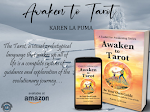






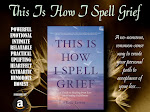




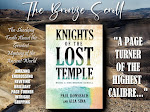












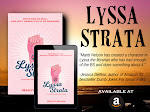



















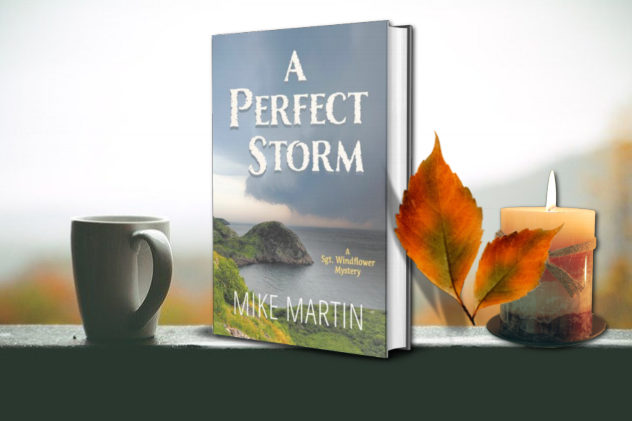




Leave a Comment